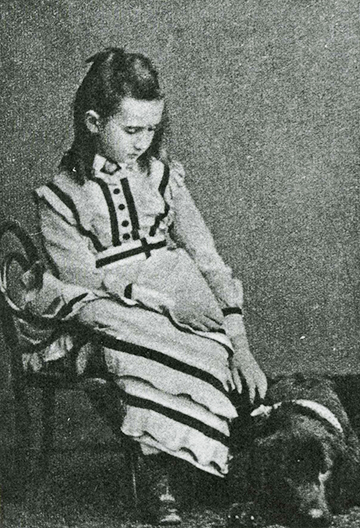 Francesca Cabrini was born on July 15th 1850 in Sant’Angelo Lodigiano, a small town of Lombardy not far from Lodi. The tenth of eleven children, Francesca was baptized on the same day.
Francesca Cabrini was born on July 15th 1850 in Sant’Angelo Lodigiano, a small town of Lombardy not far from Lodi. The tenth of eleven children, Francesca was baptized on the same day.
She took her place with two sisters, Maddalena, age 17 and Rosa, age 15 and three brothers, Francesco, who was 9, Giuseppe Santo, a 7-year-old, and Giovanni Battista, 2. The parish records of Sant’Angelo list eleven children, seven of whom met early deaths.
Her mother, Stella Oldini, was a God-fearing woman of unshakable faith, as was also her father Agostino Cabrini. Both parents know how to pass on those timeless values which are the inheritance of every Christian.
Her family played an important role in the formation of Francesca’s personality. The loving atmosphere of the home developed in her an affectionate nature and a strong self-identity.
Francesca’s father had his livelihood in the land. Sant’Angelo, situated in the fertile “Low Country” of Lombardy, is irrigated by tributaries of the Po River. The young Francesca, who was raised closed to the land, became familiar with the region’s abundant fruits and flowers and she learned early to value nature. Throughout her life she would be acutely sensitive to cloud formations, birds, and the variegated hues and aromas of harvest.
A brief summary of the years 1850 – 1870 in which Maria Francesca Cabrini grew to maturity attests to the fact that the times were tempestuous. Rising political aspirations ushered in a decade of dissent. Even in the pastoral and relatively isolated setting of Sant’Angelo, the contending forces of liberalism and conservatism were locked in conflict.
With the polarization of Sant’Angelo’s townspeople, Francesca Cabrini was made acutely aware of the historical realities of her time. This awareness, influenced by the intense Christian piety of her immediate household, contributed to the development of a personality open to examining the broad social and religious currents of the day, while staunchly maintaining the traditional practices of faith inculcated in her from childhood.
~ excerpts from Mother Cabrini, “Italian Immigrant of the Century” by Sr. Mary Louise Sullivan, MSC pp. 1-18
